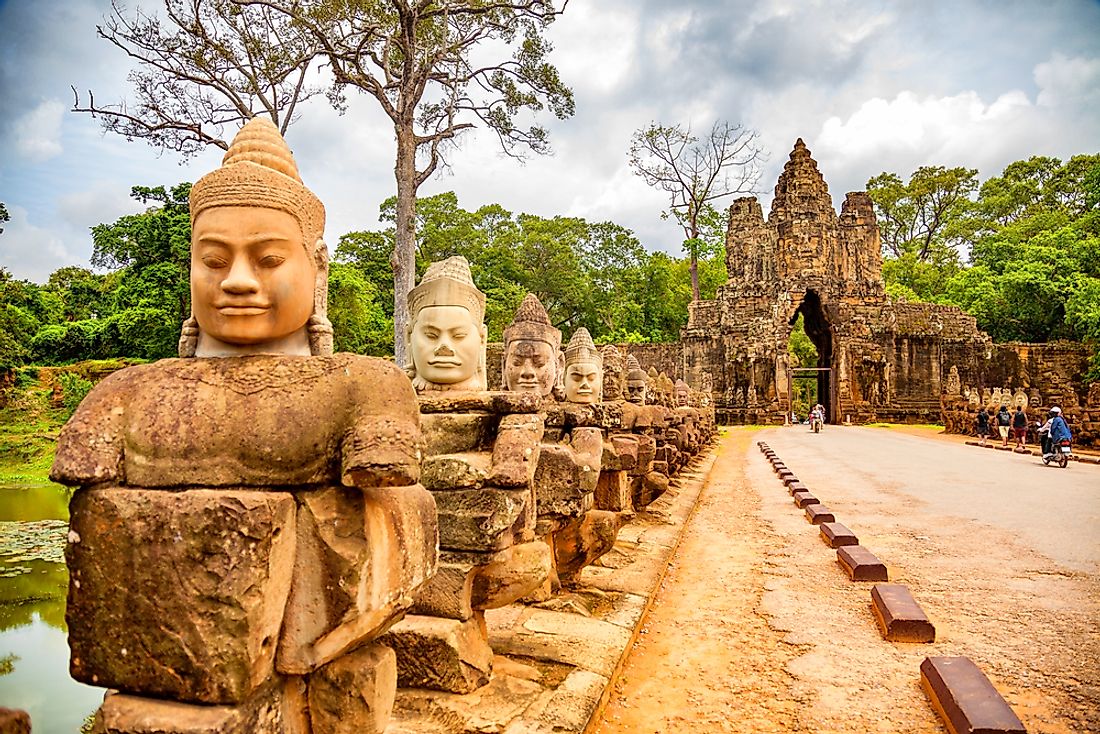How Did Cambodia Get Its Name?

The Kingdom of Cambodia, or simply Cambodia, is a sovereign country in Southeast Asia on the southern end of the Indochina peninsula. It covers an area of 69,898 square miles and has a population of about 16.2 million. Cambodia acquired its name from the Kambojas people who inhabited the land. The Kambojas people are thought to be one of the 16 Mahajanapadas of ancient India. The Kambojas are also mentioned in the history of Afghanistan although the relationship with the Kambojas of Cambodia is disputed. The origin and meaning of the “Kamboja” cannot be ascertained. The scriptures of Nirukta and 7th-century Yaska interpreted the word to mean “those who enjoy beautiful things.” The Baksei Chamkrong inscription of 947 AD claim the name means the descendants of Svayambhuva Kambu; a famous Indian chief who migrated to Indochina and married a princess. Others propose that the name was derived from an Old Persian word “Kambaujiya” meaning weak.
History Of Cambodia
The history of Modern Cambodia was first referenced in Chinese annals dating back to the 5th century. The Funan annals provide detailed records of a territory with a formal political and social structure located in the southernmost end of the Indochinese peninsula. In the 9th century, the Khmer Empire took over the control of the region and established the foundation of what is present-day Cambodia. The empire was centered on Hindu religion and culture until the 11th century when a new dynasty introduced Buddhism. In the 15th century, the region experienced significant development in agriculture and trade that people migrated from other parts of Asia and settled in the area. The migration introduced foreign culture into the region especially Islam, Christianity, European culture, and missionaries.
Colonization
In the 19th century, European colonists arrived into the country and ended the regional feud by establishing colonies across the entire region except for Thailand, which was declared a buffer state. The French colonized Cambodia for 80 years while the Japanese took control of the country for a brief period during the Second World War.
Post-independence
After Independence in 1953, Cambodia struggled to remain neutral at a time when the Soviet Union and the United States sought to spread communism and capitalism. The war in Vietnam escalated and spilled into Cambodia leading to a civil war. Between 1975-78, Cambodia and Vietnam engaged in an armed conflict that resulted in Vietnam occupying Cambodia. From 1992 to 93, the United Nations sanctioned the United Nations Transitional Authority in Cambodia formally ending the civil feuds in the country.











